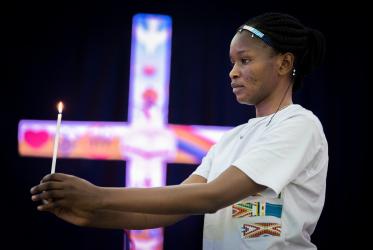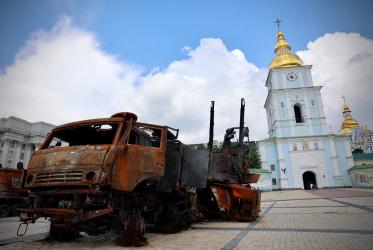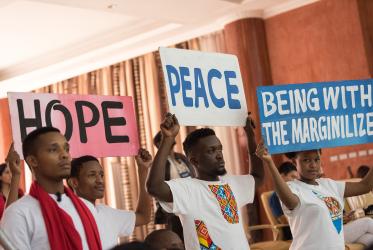As they prepared materials for the Week of Prayer for Christian Unity 2016, Christians in Latvia reflected on this year’s theme from 1 Peter 2:9, “Called to proclaim the mighty acts of the Lord.” The week of prayer is traditionally celebrated from 18-25 January (in the northern hemisphere) or at Pentecost (in the southern hemisphere).
In Latvia, the country’s oldest baptismal font — dating from the time of the great evangelizer of Latvia, St Reinhard — stands at the very centre of the Lutheran Cathedral in the country’s capital, Rīga. The placement of the font so near to the cathedral’s ornate pulpit speaks eloquently of the relationship between baptism and proclamation, and the calling shared by all the baptized to proclaim the mighty acts of the Lord.
Archaeological evidence suggests that Christianity was first brought to eastern Latvia in the 10th century by Byzantine missionaries. However, most accounts date Latvia’s Christian origins to the 12th and 13th centuries, and the evangelizing mission of St Meinhard, and later of other German missionaries. The capital, Rīga, was one of the first cities to adopt Luther’s ideas in the 16th century; in the 18th century, Moravian missionaries revived and deepened Christian faith throughout the country. Their descendants were to play a central role in laying the foundations for national independence in 1918.
Since 1968, liturgical and biblical resources for the week of prayer have been coordinated jointly by the World Council of Churches (WCC) Commission on Faith and Order and the Roman Catholic Church through its Pontifical Council for Promoting Christian Unity.
Questions for reflection
During the week of prayer, churches will have the opportunity to reflect on questions that may help them “proclaim the mighty acts of the Lord.”
How do we understand our common call to be “God’s people”?
In what ways do we see and respond to God’s “mighty acts”: in worship and song, in work for justice and peace?
Knowing the mercy of God, how do we engage in social and charitable projects with other Christians?
These are three among many meaningful questions that will help people focus on spiritual renewal and Christian unity, according to Rev. Dr Odair Pedroso Mateus, WCC director of Faith and Order.
An ecumenical celebration using symbols of the Bible — a lighted candle and salt — will also help people find new meaning. “We hope that, in their own expression of an ecumenical celebration, churches will be able to see anew the mighty acts that we are called, as baptized Christians, to proclaim to the world,” he said. “May we all be joined in one mission, to be salt of the earth and light to the world.”
Resources for the week of prayer are available in English, French, German and Spanish, and include an introduction to the theme. Local congregations are encouraged to adapt the theme in their own local liturgical, social and cultural contexts.
Material for the week of prayer is also available for the first time on smart phones, computers and tablets in 2016, through a collaboration between the WCC and YouVersion, developer of the “Bible App.”
More information on the Week of Prayer for Christian Unity
Access the Week of Prayer material via the YouVersion Bible reader








